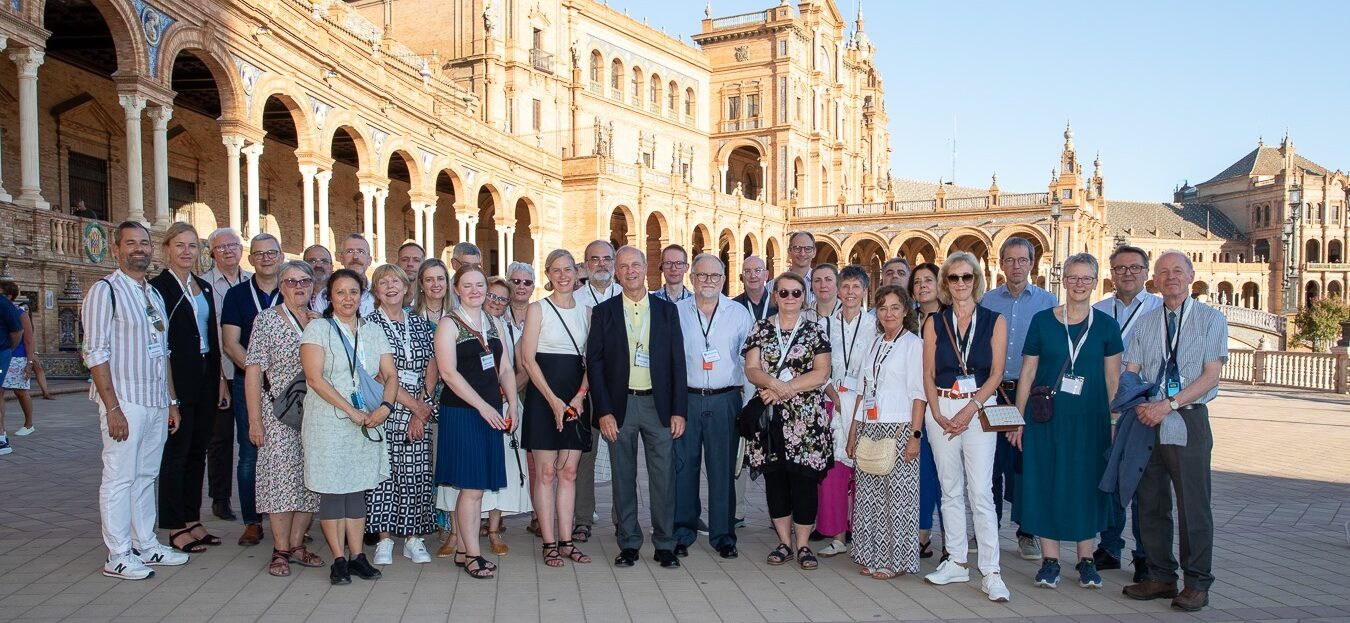Governance and financial reporting
FEMS is registered in the United Kingdom as a Charity (No. 1072117) and as a Company (a Company limited by guarantee and not having a share capital; incorporated on 18 May 1998; No. 3565643). We are certified with a US Equivalency Determination (valid through 31 December 2020, No. 1430)
2024 Annual Report | 2023 Annual Report | 2022 Annual Report | 2021 Annual Report |2020 Annual Report | 2019 Annual Report | 2018 Annual Report | 2017 Annual Report | 2016 Annual Report | 2015 Annual Report | 2014 Annual Report
FEMS is overseen by the Board, who provide strategic direction and individually contribute their skills and experience. The Board is responsible for checking that FEMS is working efficiently, delivering objectives and complying with our policies, relevant laws and legislation. Our Board is responsible for the governance of FEMS and ensuring the organization is well run, solvent, and delivering to its charitable objectives while contributing the long-term security of FEMS by ensuring the organization is prepared to meet future challenges.
Our Members convene annually to review the organization’s performance and vote on important decisions, including the election of the Board. A representative from each Member is invited to attend the meetings of the FEMS Council. Delegates have access to documents from these meetings via their MyFEMS account.
The governance of the Federation of European Microbiological Societies is described in two documents that constitute the FEMS Statutes. The statutory documents are the ‘Memorandum of Association’ and the ‘Articles of Association’. These two documents may only be amended after approval by the FEMS Council. As the registered office of FEMS is situated in the UK, the statutes adhere to UK format.
- Memorandum of Association (PDF dated 1 May 2017)
- Articles of Association (PDF dated 12 October 2023)
A number of additional committees also exist to contribute external perspectives, independent reviews or additional capacity for extra initiatives. These all report to the Board.
Grants Committee
The Committee oversee the delivery of FEMS Grants, assessing and awarding grants based on their potential to deliver scientific excellence, professional development and/or impact based on their Terms of Reference.
The Committee is currently made up of:
- Jana Jass, FEMS Grants Director, Örebro University, Sweden
- David Rodriguez-Lazaro, Universidad de Burgos, Spain
- Karen Trchounian, Yerevan State University, Armenia
- Elzbieta Anna Trafny, Military University of Technology, Poland
Previous Grants Committee members here
Election Committee
The Election Committee was established to encourage nominations for succession of the FEMS Board from candidates representing the full diversity of FEMS Member Societies and of the FEMS community. It provides guidance and advice to any individual considering applying. It also oversees the election process to ensure transparency and compliance with FEMS regulations. The Terms of Reference of the Election Committee can be read here.
The Committee consists of one representative from the Board (the Secretary General) and representatives from Member Societies, reflecting the regional diversity of FEMS. For more information on the Committee, you can contact them via electioncommittee@fems-microbiology.org
The Committee is currently made up of:
- Hilary Lappin-Scott, Chair, United Kingdom
- Bauke Oudega, Co-Chair, Netherlands
- Ina Gajic, Belgrade
- Nikoli Petrov, Bulgaria
- Vittorio Venturi, Italy
Awards Committee
The Committee has responsibility for delivery, oversight and development of FEMS awards in line with its strategy. It is the assessment panel for FEMS portfolio of awards.
The Committee currently consists of:
- Antonio Ventosa, Chair, Spain
- Beate Averhoff, Germany
- Paul Cos, Belgium
Finance Committee
The Finance Committee works with the Executive Director to professionalize the finance function, financial reporting, budget oversight and future budget formulation for the organization.
The Committee currently consists of:
- Christopher Morton Thomas , Chair, United Kingdom
- Antonio Ventosa, Spain
- Branka Vasiljevic, Belgrade
Open access is key to supporting the FEMS mission of disseminating high quality research as widely as possible: when high quality, peer reviewed sound science is open access, anyone, anywhere in the world with an internet connection, can read it. All but one of the not-for-profit FEMS journals are fully open access (OA), with one journal, FEMS Microbiology Letters, offering free-to-publish and OA options.







